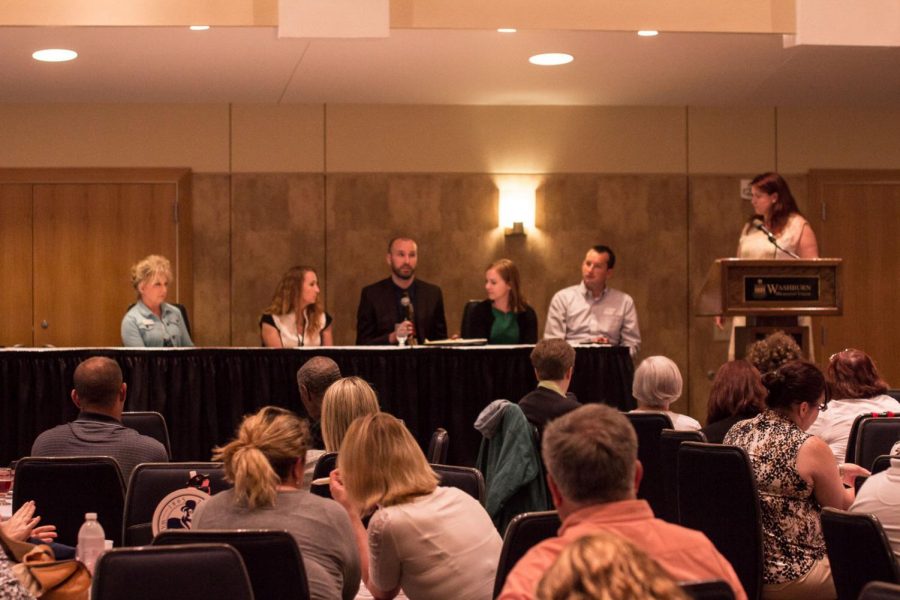Community presents fresh ideas at the Topeka Community Conversation on Poverty
June 19, 2015
June 16 marked the second annual Topeka Community Conversation on Poverty, an event that takes place at Washburn University to allow members of the community to select and then discuss a variety of topics related to poverty.
The un-convention, a title given to the gathering due to its unconventional format, kicked off the day by allowing attendees the opportunity to add any topics of conversation related to poverty onto a wall. This allowed attendees to reflect on topics related to poverty before they were allowed to vote on priority topics to be discussed in individual sessions later in the day.
Karen Hiller, current deputy mayor and second-term city councilwoman, then addressed the crowd with opening remarks that reflected upon the value of the art movement within Topeka, with an emphasis on how Topeka’s Aaron Douglas Mural celebrates the life of the Topeka-born muralist. She also suggested to her audience that three core signs of poverty include lack of resources, lack of control over one’s life and a lack of hope for the future, so they could reflect on the value and necessity of how those ideas function in our daily lives.
After being introduced to the format of the event, attendees broke off into groups to attend breakout sessions. These sessions were led by different members of the Topeka community, but were in reality led by audience participation. This allowed participants to gain new perspectives on familiar topics and also provided a platform for community members to voice ideas that they believed could help improve the lives of Topeka citizens.
Some of the day’s sessions included discussions on poverty’s role in domestic violence, poverty’s role on substance abuse issues and ways to strengthen the relationship between programs and policy.
The event culminated as participants were given the opportunity to pitch a 90 second idea for a project or collaboration between organizations. After that, participants split off to meet with those who had given pitches for projects in which they might be interested. In the end, eleven pitches were delivered.



